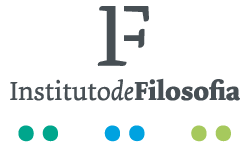Frege, Father of Disjunctivism | 3ª Sessão
From: 2014-03-20 To:2014-03-20
Thematic Line
Modern & Contemporary Philosophy
Research Group
Mind, Language & Action
Frege, Father of Disjunctivism
Charles Travis
Emeritus Professor of Philosophy – King’s College London
Departamento de Filosofia e Instituto de Filosofia da Universidade do Porto
3ª sessão
20 de março de 2014, 13.30 h
Sala do Departamento de Filosofia (Torre B – Piso 1)
FLUP
This series of seminars will consider two central issues in current philosophy of perception. One fits under the rubric disjunctivism; the other under the rubric representationalism. Both of these are issues which are often poorly understood. Hence in each case there are a variety of things going under the name. Disjunctivism and anti-representationalism often, but not necessarily, go together. It is probably most usual to locate that pair of positions (in recent philosophy) in the work of J.L. Austin, also (particularly disjunctivism) in J. M. Hinton. But a good deal of the motivation for both positions is found in Frege, whose most central concern, after all, was (the most general structure of) a particular kind of representation. Disjunctivism is closely linked with a concern for the publicity of thought and language; hence closely linked to arguments against the possibility of private language. Seeing this link can be a great help in seeing disjunctivism as sensibly motivated rather than as a piece of esoterica (as it often is seen by its opponents). In the seminar we will try to consider this matter in some detail.
One of the purposes of this seminar is thus to lead our two central issues back to Frege. From there we can examine their progress through Austin and Hinton. John McDowell is someone who—somewhat unusually—combines disjunctivism with a form of representationalism. His work also contains more different disjunctivisms (not just about perception) than most other philosophers. So we will also consider some of his work. I will present this in the context of a debate which has been going on between us for the last ten years. One might ask whether 10 years have yielded any progress. This is something we will try to see.
The most important text of Frege’s for our purpose is “Der Gedanke” (1918).
The most important text of Austin’s is Sense and Sensibilia.
The most important text of Hinton’s is “Visual Experiences”, Mind, 1967.
For McDowell, it is a good idea to read Mind and World, but the most important for our purposes will be “Avoiding the Myth of the Given” (2008), and his second Agnes Cuming lecture (Dublin, 2013), which I will make available.
As background for whoever is interested, the first 8 sections or so of Wilfrid Sellars’ Empiricism and the Philosophy of Mind has some interesting material.
It is also worth noting that Hinton is generally thought to have been responding to an important article of H. P. Grice called, “The Causal Theory of Perception”. (See his The Way of Words)
Austin and Hinton—and Frege—were also reacting to a whole raft of philosophers who are thought of nowadays as sense-datum philosophers (though not all of them would have called themselves that). These include, importantly, H. A. Prichard, H. H. Price, G. E. Moore, and most directly in Austin’s case A. J. Ayer. The curious may want to read some of these. Perhaps the only thing that all had in common (though Ayer would deny that he had it) was a conviction that whatever it is we see, it certainly is not the extradermal world—our surroundings. The reasons why they thought this, insofar as any were stated, are a bit diverse.
No, I do not know why so many English philosophers go by their initials.
Charles Travis
Organização: RG Mind, Language and Action Group, Instituto de Filosofia da Faculdade de Letras da Universidade do Porto
____________________________________________
Instituto de Filosofia (UI&D 502)
Faculdade de Letras da Universidade do Porto
Via Panorâmica s/n
4150-564 Porto
Tel. 22 607 71 80
E-mail: [email protected]
https://ifilosofia.up.pt/
Financiamento, avaliação e auditoria do Instituto de Filosofia:
FCT / COMPETE / QREN / UE
